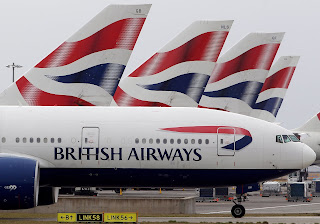Read the original article: Cyber Security Roundup for November 2020
A roundup of UK focused Cyber and Information Security News, Blog Posts, Reports and general Threat Intelligence from the previous calendar month, October 2020.
London’s Hackney Borough Council has been tight-lipped about “a serious cyber-attack” which took down its IT systems, impacting its service delivery to citizens. Providing scant information about the attack, it has all the hallmarks of a ransomware outbreak. The council says it is working with the UK’s National Cyber Security Centre (NCSC) and the Ministry of Housing to investigate and understand the impact of the incident. Ransomware attacks continue to a major problem for public services from councils to hospitals to defend against, earlier this year Redcar and Cleveland Borough Council said it had been hit by a ransomware attack, which cost it more than £10m.
Looks like the ransomware threat will continue to pose a major threat, with separate reports stating a resurgence in the Emotet trojan, a dropper of ransomware was reported, and the hacking group behind the Ryuk ransomware has again become active. Indeed, the new variant of Ryuk ransomware previously unknown to antivirus software providers and security agencies was said to be behind a cyberattack on Sopra Steria’s operations in October 2020, the digital services company has confirmed.
 |
| BA lost 430,000 payment card details to hackers after Magecart e-commence skimming attack in 2018 |
BLOG
NEWS
- London’s Hackney Borough Council hit by Cyber Attack
- British Airways fine dropped by £163m due to economic impact of Pandemic
- Blackbaud: Bank details and Passwords at Risk in giant Charities Hack
- Sopra Steria confirms new Ryuk version behind Cyberattack on its Operations
- The United States charges six Russian Hackers over Global Attacks that hit Novichok probe and Olympics
- ‘Clear evidence of collusion’ between Huawei and Beijing, claim MPs
- Therapy Patients Blackmailed for Cash after Clinic Data Breach
- Marriott Hotels fined £18.4m for Data Breach that hit Millions
VULNERABILITIES AND SECURITY UPDATES
- Microsoft and Partners unite to target Trickbot Infrastructure in Legal Takedown
- Sophisticated New Android Malware marks the latest Evolution of Mobile Ransomware
- NCSC Advisory: The US warns of Chinese Actors Exploiting Public Vulnerabilities
- ‘Zombie’ Ryuk Ransomware Group Returns
- Resurgence of Emotet Ransomware
Read the original article: Cyber Security Roundup for November 2020